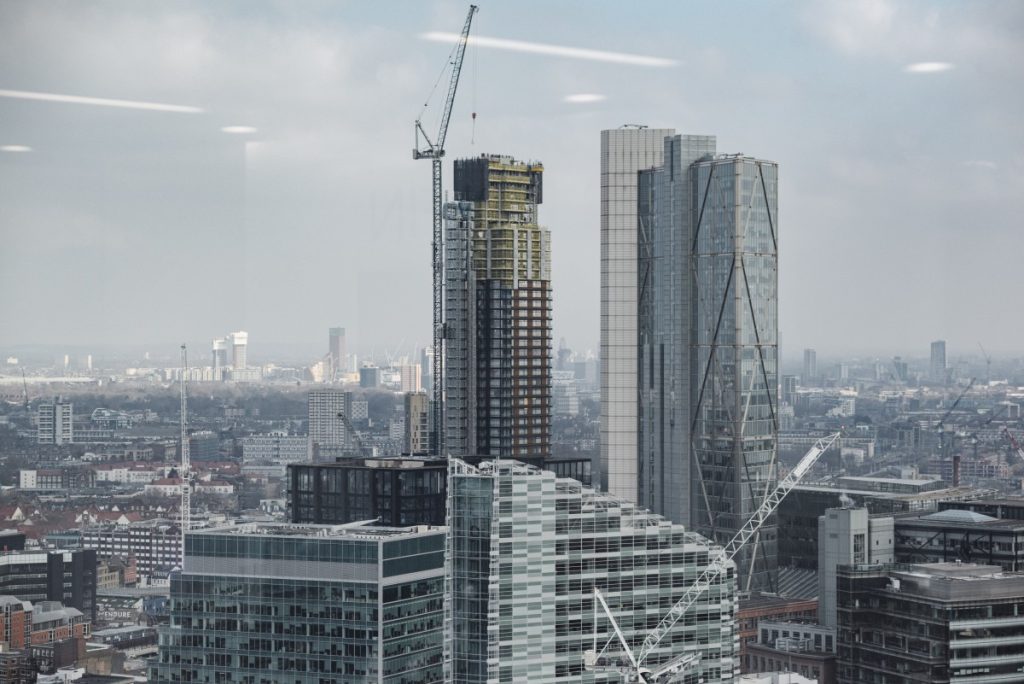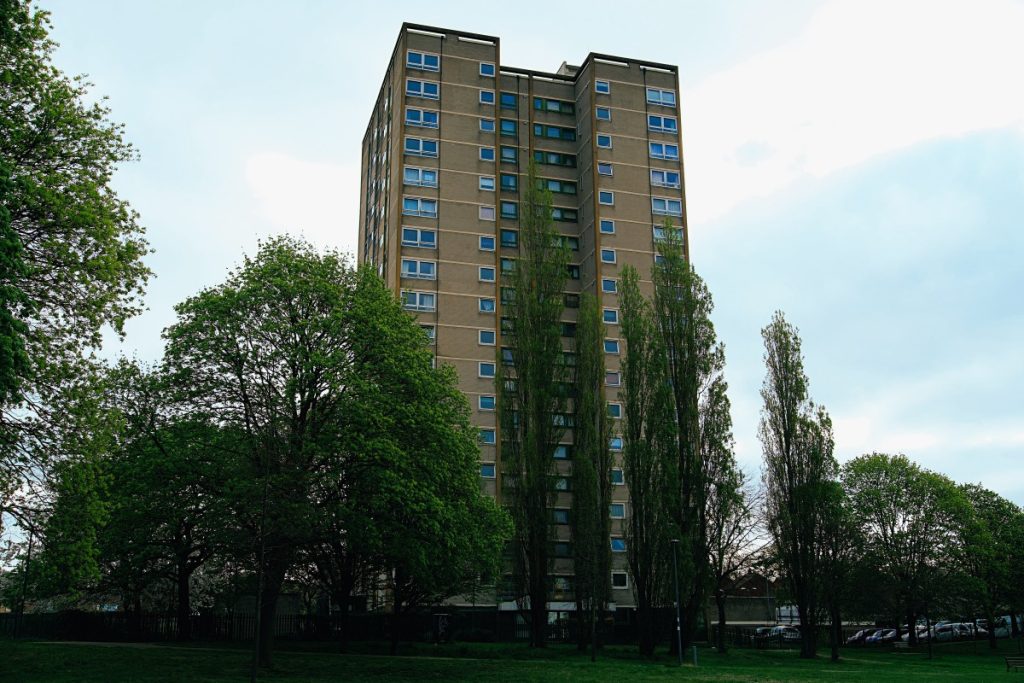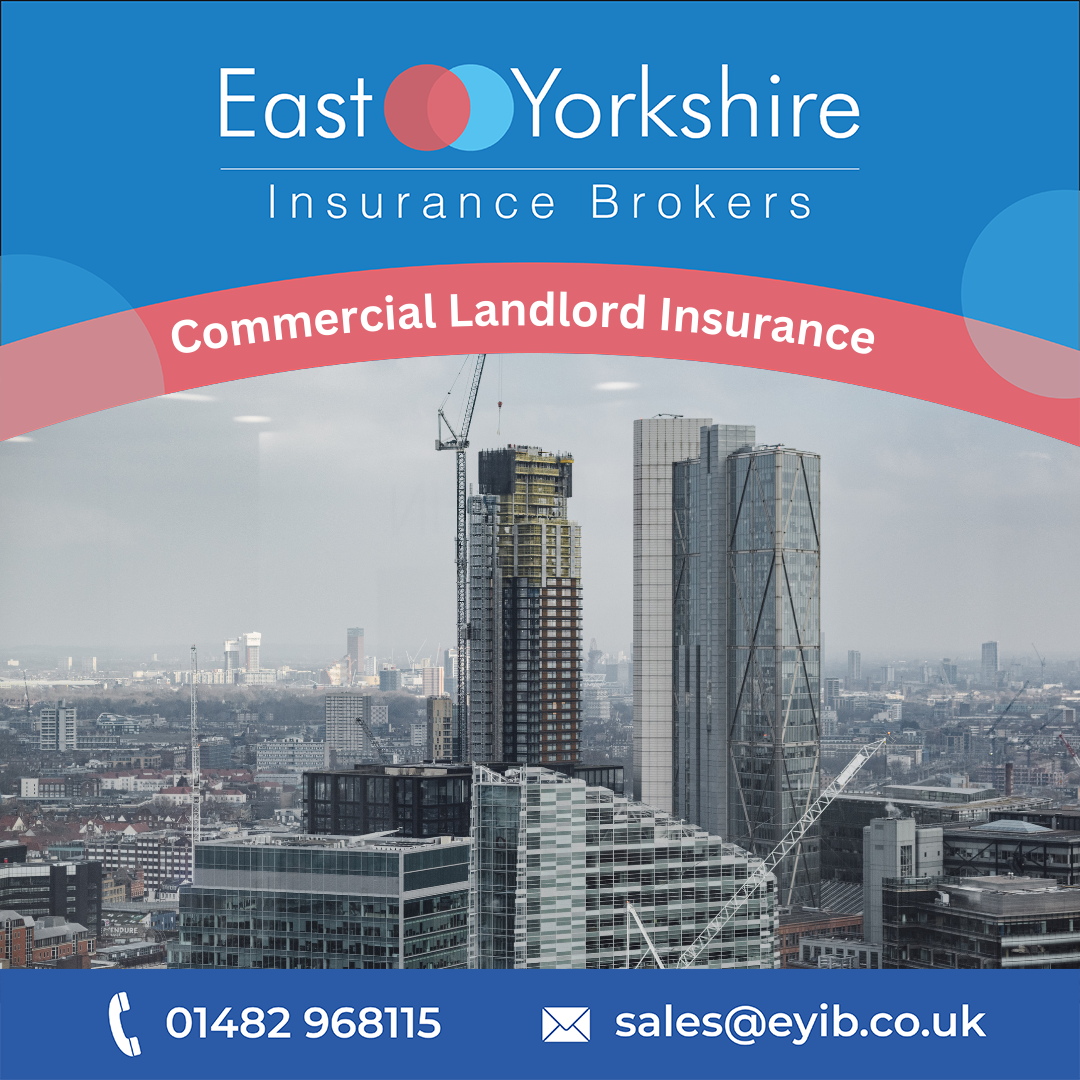Guide To Commercial Landlord Insurance and Unoccupied Property Insurance

Owning a property comes with its own unique challenges, and as a landlord, finding the right cover that your building needs can be confusing on its own; with the different types of covers available along with their own unique set of requirements. Whether you own a block of flats, a shop, industrial unit or any other commercial space, as a landlord it’s your job to safeguard these properties against unforeseen risks and potential liabilities.
If you’re a landlord, finding which essential covers your commercial property needs can seem like a daunting task, as there are many potential risks you need to keep in mind. From protecting your property from accidental damage, to safeguarding your finances in the event of unpaid rent, making sure you have the correct cover in place will give you peace of mind as you rent out your property.
This can be incredibly confusing with the sea of different opinions available, knowing what cover you need and which ones are unnecessary can seem impossible. Although you don’t want to pay for the wrong insurance, you also don’t want to leave out an essential cover, as recent research shows that 80% of commercial properties in the UK are underinsured.
So, if the world of commercial landlord insurance is leaving you baffled, then you’re in luck. At East Yorkshire Insurance Brokers, we have put together this guide to answer all of your questions, from why do landlords need commercial insurance, to the types of covers, so you can be more informed when making important decisions for your property.
What Is Commercial Property Insurance?
Commercial property insurance is a type of insurance which is designed to protect landlords from a variety of potential risks when leasing commercial spaces. Unlike residential landlord insurance, which focuses on homes and rental properties, commercial building landlord insurance specifically addresses the distinct challenges associated with commercial properties when leased to a business. If your property is residential, a residential landlord policy will be suitable whereas if you own a commercial or industrial property a commercial landlord policy will better fit your requirements.
Types Of Commercial Property Insurance:
- Office Space Insurance: One of the most common types of commercial property is office spaces. These include a wide range of properties, from office blocks to individual offices located above shops and other commercial units.
- Retail Space Insurance: These are properties used for retail businesses, including standalone shops or larger shopping centres. For more information on covers for retail businesses such as Restaurant insurance, then read our blog on EYIB.
- Industrial Property Insurance: Another type of commercial properties are industrial properties that are designed for storage, distribution or manufacturing purposes, often storing valuable inventory and equipment, such as garages or warehouses.
- Block of Flats Insurance: Block of flats insurance is designed for residential properties housing multiple units within a single building. It covers structure, communal areas, liabilities related to managing multiple residential units and loss of rent from small blocks of flats to much larger premises.
- Non-Standard Construction Insurance: A standard construction would be brick or metal built with a tile/slate or metal roof. If a property is of a non-standard construction a standard landlord policy may not be suitable. If you have a property on non-standard construction then contact us for more information.
Commercial landlords have significant responsibilities beyond just property ownership. They’re accountable for maintaining a safe environment for tenants, adhering to regulatory standards and mitigating risks associated with the property. With these responsibilities, comes the need for tailored insurance coverage. Having commercial property insurance in place acts as a safety net, providing financial protection against an array of potential risks, ensuring landlords can navigate unforeseen challenges without risking their investments.
Moreover, property owners liability protects landlords against legal claims from third parties who may suffer injury on their property.

What Does Block Of Flats Building Insurance Cover?
Block of flats insurance extends to properties that were originally houses, but have been converted into multiple flats or units. This includes safeguarding the structure, communal areas, and potential liabilities arising from managing these converted spaces, addressing the unique challenges and risks associated with conversions.
For properties categorised as HMOs (houses in multiple occupation), block of flats insurance provides specialised coverage for housing multiple tenants with shared facilities. It includes structural protection and liabilities that may arise from multiple tenants in shared spaces. Your property is a HMO if at least 3 tenants live there from more than 1 household, and the tenants share a toilet, bathroom, kitchen and other facilities.
Why Do Landlords Need Insurance?
You may think insurance for landlords is just a precaution to take but not necessary. However, you may be surprised at the amount of risks you face when owning/renting out a commercial property. From financial loss, to lawsuits, these unfortunate risks can be detrimental to a property owner, and most importantly, could be avoided. Therefore, commercial building landlord insurance is not just an option, but a necessity for property owners. Here’s why landlords should prioritise securing proper insurance coverage for their commercial properties.
- Protection against financial losses
Landlords face a multitude of risks, such as property damage due to natural disasters and liabilities stemming from accidents on the premises. This could be from the result of a flood, fire, malicious damage, or escape of water. These are all risks that insurance can serve as a financial safety net for, shielding landlords from significant financial losses resulting from these unforeseen events.
- Securing rental income
Rental property insurance is crucial when securing your finances. Loss of rental income due to a material damage claim can significantly impact landlords’ revenue streams. If the landlord has legal expenses, having rental property insurance in place can cover loss of rent to ensure a consistent flow of income, compensating landlords for the income lost.
- Mitigating liability risks
From tenant injuries to property damage caused by third parties, landlords are exposed to various liability risks. Rental property insurance coverage, particularly property owners liability insurance for landlords, protects against potential lawsuits and the associated legal costs, ensuring financial stability in the face of such liabilities.
- Providing landlords with peace of mind
Insurance provides landlords with peace of mind, allowing them to focus on managing their properties without the constant financial worry due to unforeseen circumstances. It ensures business continuity by minimising disruptions caused by covered incidents.
What Are Different Types Of Rental Property Insurance Cover
Understanding why you need commercial landlord insurance requires a closer look at the diverse coverage options available to protect commercial properties.
- Buildings sums insured
Property damage coverage shields landlords from financial losses caused by damages to the physical structure of the property. This cover protects against a variety of perils that could potentially wreak havoc on your property. From the devastating impact of fire, floods or storms, to the threat of theft of malicious damage. Having this cover mitigates the financial risks of such devastating perils.
Following property damage, building sums specifically focus on the cost of rebuilding or repairing the structure of the building in case of damage or destruction. It ensures that the sum insured matches the rebuilding cost, accounting for factors like construction costs, materials and professional fees. This coverage ensures that in the event of perils mentioned above, landlords are shielded financially, so you can make the repairs necessary to restore the property.
- Landlord’s contents insurance
Landlord’s contents insurance is a crucial safeguard that not only extends over the landlord’s possessions within the property, but also over communal areas in cases for blocks of flats. Where communal hallways or shared spaces are part of the property, this insurance covers the furnishings, fixtures and equipment within these areas. For Airbnbs where the space is furnished with personal items, this insurance can be pivotal. It ensures protection for the landlord’s contents including furniture, appliances and other personal belongings. Having contents in place can protect you financially as a result of expensive equipment being damaged or stolen.
- Legal expenses cover
In the event of being sued, having legal expenses cover in place can give you peace of mind that your finances are protected. This protects landlords financially in the result of a tenant not paying rent. This covers the landlord to pursue legal options to recover the rent and evict the tenant. However, rent guarantee insurance can give a landlord additional peace of mind to cover unpaid rent.
- Loss of rent cover
Loss of rent coverage provides financial compensation to landlords for lost rental income due to property damage or an event that renders the property uninhabitable. This coverage ensures a consistent stream of income despite temporary disruptions caused by covered incidents.
Having this cover in place also protects tenants from being left stranded by covering alternative accommodation. This is crucial and relieves the burden on landlords by relocating the tenant to temporary accommodation instead of paying for loss of rent, as the tenant will still be able to provide the landlord with the rent that’s due.
- Properties owners liability insurance
Public liability insurance is normally called property owners liability for landlords and protects them against legal and financial liabilities that occur from injuries or property damage sustained by third parties on their property. This coverage is crucial in scenarios where tenants, visitors or even trespassers sustain injuries, or face property damage because of the conditions on the premises. Property owners liability covers legal fees, medical expenses and settlements from lawsuits, protecting landlords from financial loss.
Unoccupied Property Insurance
If you own a commercial property that’s vacant, then you will need specific unoccupied property insurance. The same applies if your once occupied commercial property is going to become unoccupied, If it’s been vacant for 30+ days you will need to notify the insurer immediately as you may not be covered. Although finding cover for unoccupied properties can be difficult as some insurers refuse cover, there is specific unoccupied commercial property insurance which can provide cover for the duration that the property remains vacant.
Unoccupied commercial properties come with many different risks compared to occupied commercial properties, therefore you need specific insurance that covers your property while it’s empty. When your commercial property is unoccupied, there is an increased risk of theft and vandalism due to lack of surveillance. There is also an increase in other problems with the property that could lead to substantial damage if left unnoticed, for example a water pipe bursting. Since the property is empty these risks can go unnoticed due to lack of maintenance, which otherwise would be resolved quickly, and before becoming too severe, if the property was occupied. This is why you need to arrange specific unoccupied property insurance, to make sure that all these risks are covered. For some unoccupied insurance policies may require certain conditions to be met in order to keep the coverage valid. This could include regular inspections every 7 days or specific security measures, the water to be turned off and the letter box sealed in order to make sure the property is secure.
Normal Landlord Insurance VS Unoccupied Property Insurance
One important information to note is the difference between normal landlord insurance and unoccupied property insurance. Normal landlord insurance is designed to cover commercial properties that are leased to a business or a residential property rented to family. This type of insurance typically includes coverage for property damage, liability protection, loss of rent, and other common risks associated with active commercial or residential spaces. Most policies covered by landlord insurance only cover 30-45 days unoccupied, for longer periods, you may need unoccupied property insurance. Typically these policies will also exclude certain covers like malicious damage or escape of water after the allowed unoccupied period.
- Property damage coverage: This protects against fire, flood, earthquake, subsidence, malicious damage, theft, escape of water, accidental damage and other typical insurance perils.
- Liability insurance for landlords: This Covers legal expenses and damages if someone is injured on the property or if property damage occurs due to landlord’s negligence.
- Loss of rent coverage: Landlords can claim compensation for lost rental income if the property becomes uninhabitable due to covered incidents.
On the other hand, unoccupied insurance is specifically tailored for commercial or residential properties that are vacant or unoccupied for extended periods of time. Standard landlord insurance might have limitations when a property remains unoccupied for a certain duration. Unoccupied insurance fills this gap by providing specialised coverage for:
- Property damage coverage: This extends protection against similar perils but focuses more on risks associated with unattended properties, such as vandalism, theft, or damage due to lack of regular occupancy.
- Liability insurance for landlords: If the property is going to be vacant for more than 30 days, then this cover offers similar protection but addresses the risks related to unoccupied premises, such as a burst pipe going unnoticed and damaging a neighbouring property.
- Loss of rent insurance: This cover won’t apply as an unoccupied property won’t have tenants.
Key Differences:
If you’re a commercial landlord, it’s important to understand the differences between normal landlord insurance and unoccupied insurance, so you can guarantee that your property is properly protected. For this, the landlord needs to make sure that they have the appropriate coverage in place based on the occupancy status of the commercial property. Here are some key differences your need to keep in mind:
- Occupancy status: The primary distinction lies in whether the property is actively occupied or unoccupied. Each type of insurance addresses the specific risks associated with its respective occupancy status.
- Cover focus: Normal landlord insurance focuses on protecting actively used commercial spaces, while unoccupied insurance is specialised for safeguarding vacant properties.
- Flexibility and duration: Unoccupied insurance might offer more flexibility in terms of coverage duration, catering specifically to the period of vacancy.

FAQs On Commercial Landlord Insurance Cover
As a commercial landlord, you may have many unanswered questions. Here are some FAQs on commercial insurance cover.
What insurance do you need for commercial property?
Insurance needs for commercial property varies, but essential coverage typically includes commercial property insurance, liability insurance for landlords and business interruption insurance.
What insurance should I have as a landlord?
Landlords should consider having commercial building landlord insurance, which encompasses property damage coverage, liability protection, loss of rent coverage, and additional options based on specific needs. This insurance safeguards landlords against various risks associated with leasing commercial spaces.
Do landlords need public liability insurance?
Property owners liability insurance is highly recommended for landlords. It covers legal and compensation costs if someone (e.g tenant or visitor) suffers injury or if any third party property damage occurs in the rented premises. It’s crucial for safeguarding against potential lawsuits and liabilities. Public liability is included as standard with a minimum of a £2 million indemnity limit on all landlord policies.
Is landlord insurance mandatory?
While standard landlord insurance is not legally mandatory in most places, it’s often a crucial choice for landlords. However, certain types of insurance, like property owners liability or specific coverage mandated by lenders or local regulations, may be obligatory.
Who pays commercial building insurance, landlord or tenant?
Typically, the landlord pays for commercial building insurance. However, lease agreements may vary. In some cases, the tenant might be responsible for specific insurance costs, depending on the lease terms negotiated between the landlord and tenant.
What is commercial insurance?
Commercial insurance refers to various insurance policies designed to protect businesses and commercial entities against financial losses, property damage, liability risks and other risks in the commercial realm. Commercial insurance can include a range of covers all tailored to business needs, including property, liability and business interruption coverage.
How do I set the correct building sums insured?
Your insurance should cover the cost of rebuilding your property, as a result of perils such as fire, floods, earthquakes etc. For guidance on the cost of rebuilding houses and flats, you can use the ABI (the Association of British Insurers) calculator to check the adequacy of your sum insured. For a full report on the rebuild valuation, a rebuild cost assessment is recommended on each property every 3-5 years.
Why Choose A Broker For Commercial Landlord Insurance
Choosing a broker to help arrange landlord insurance for commercial properties can be extremely beneficial. With expert knowledge in the insurance industry, East Yorkshire Insurance Brokers have experience in arranging landlord insurance for commercial properties, whether you’re looking for cover for unoccupied or occupied properties. With our knowledge we have the expertise to guide landlords through different policies, offering the best advice, so you can find the correct cover that meets your needs.
Not only that but insurance jargon can be overwhelming, especially if you’re unsure what cover you need. We are personable and professional, making you feel at ease when arranging cover, which would otherwise be a daunting experience. We will provide you with all the necessary information, speaking in terms that you understand so you can say goodbye to confusion surrounding insurance policies. So, if you’re looking for the right insurance for your commercial property, whether you own a restaurant, warehouse or an office space, then you’ve come to the right place. With our knowledge and understanding of the industry, we can make sure that you’re completely covered from any potential risks associated with your property, and that your finances are protected. Get in touch with us today, and get peace of mind knowing that you’re covered from any risks that may come your way.


